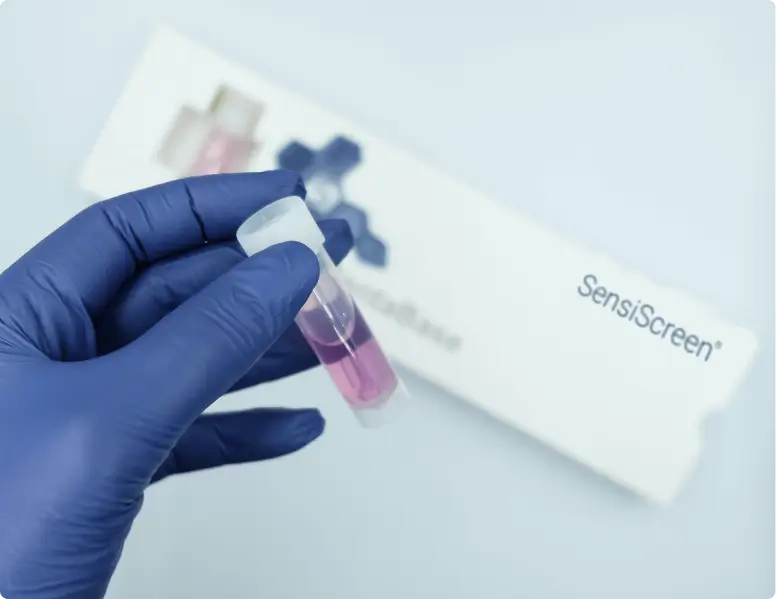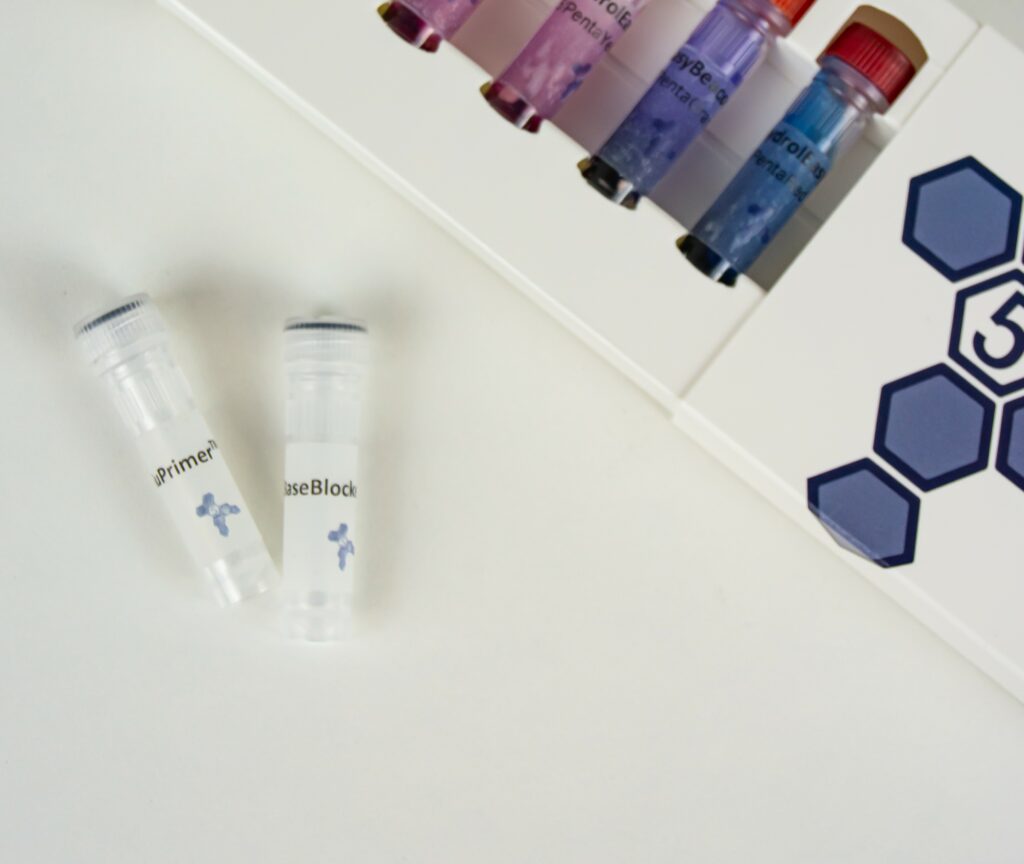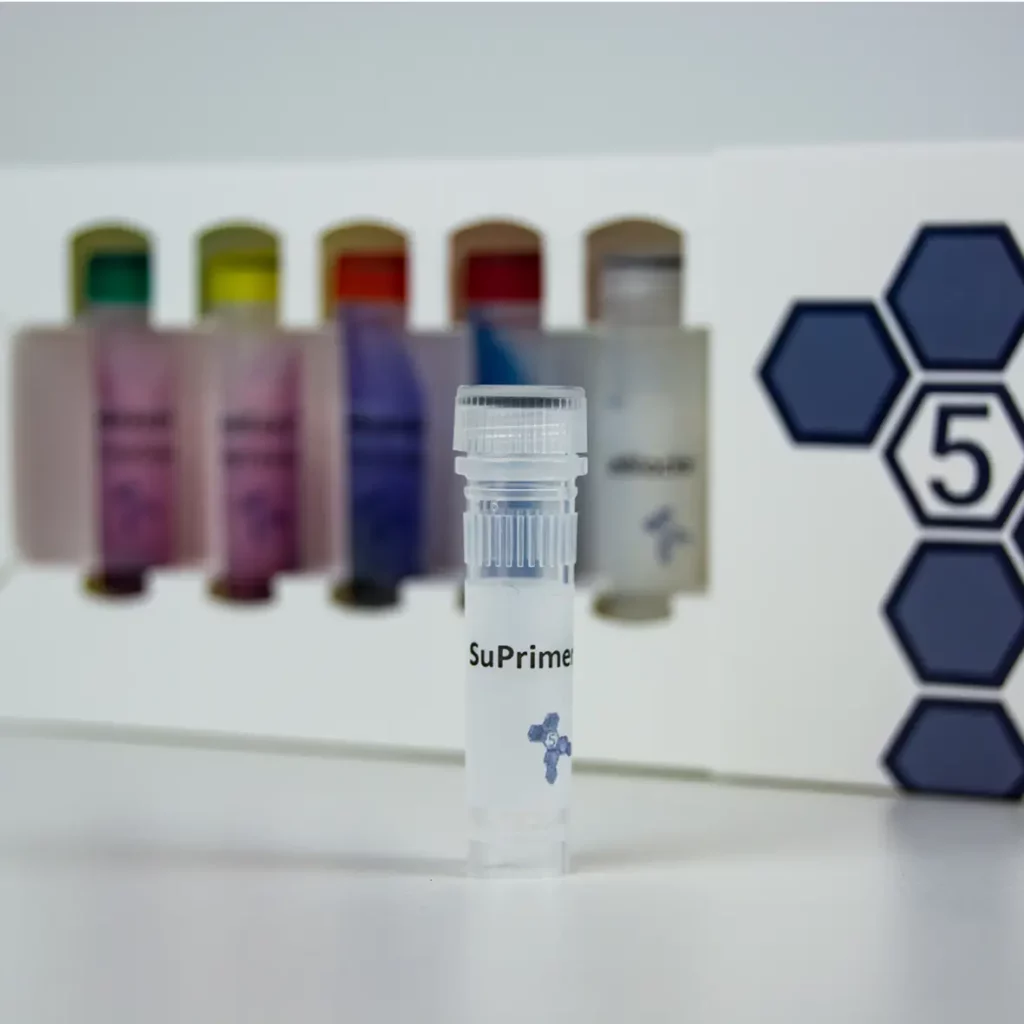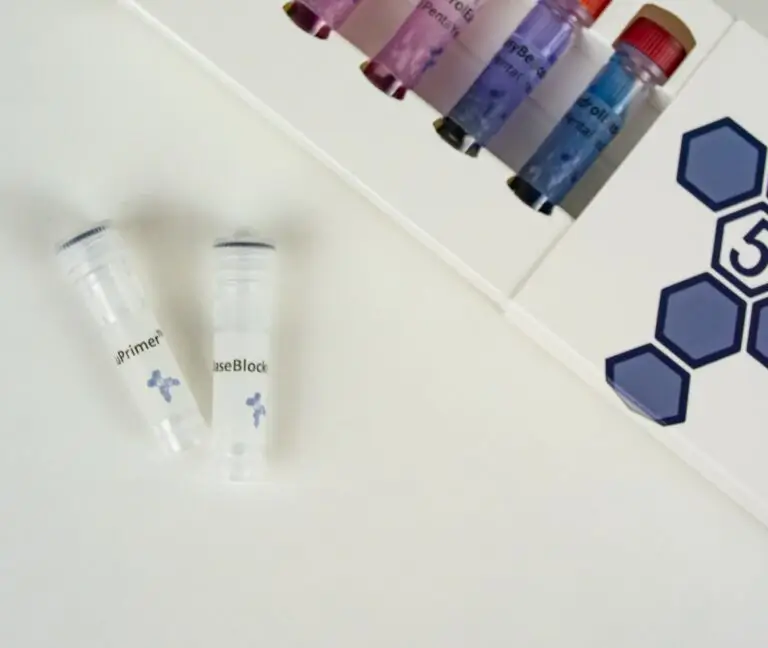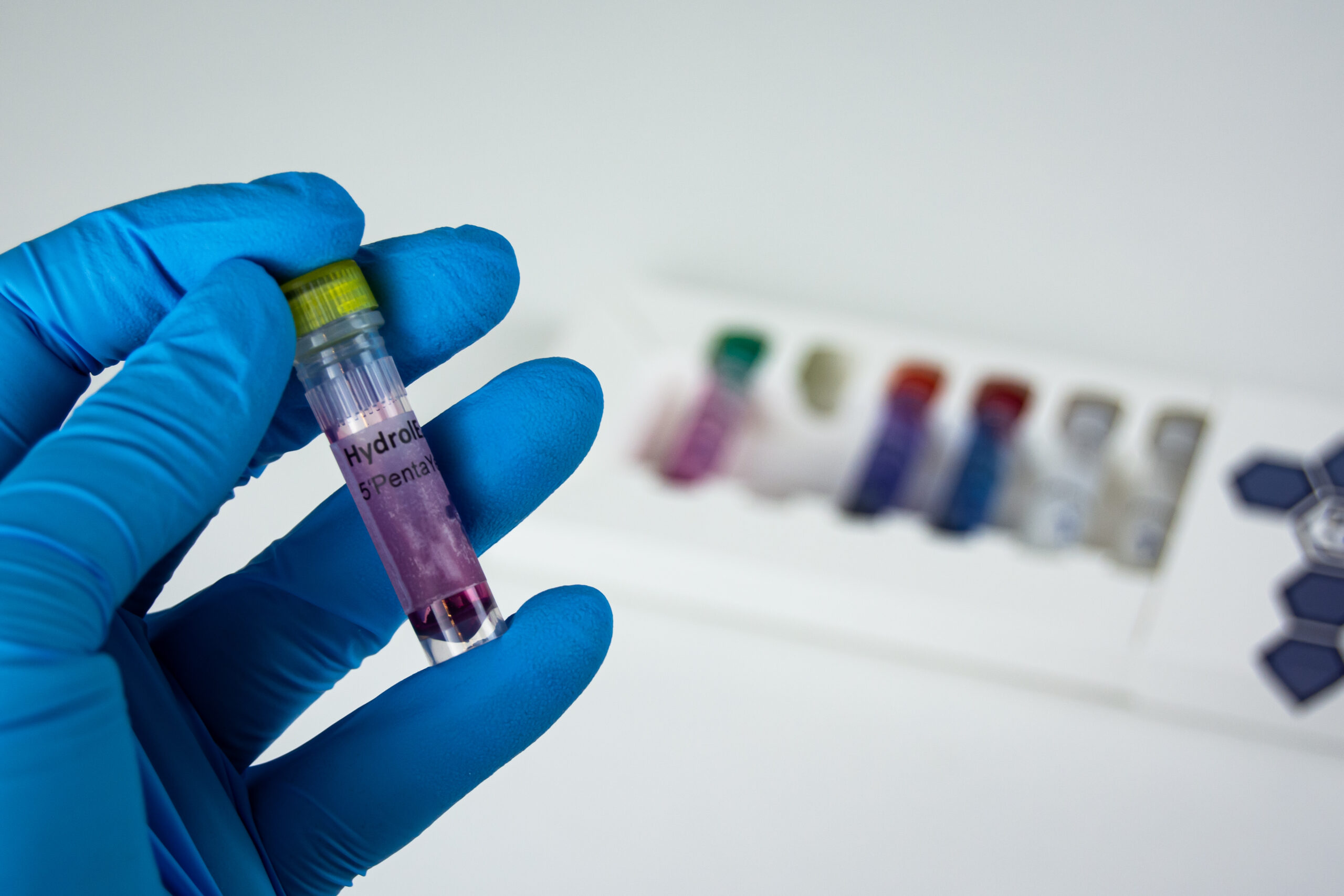
HydrolEasy® Probe
The HydrolEasy® probe is an improved alternative to TaqMan®1 and molecular beacon hydrolysis probes. The INA® technology used in HydrolEasy® probes creates a secondary structure in the unbound state that efficiently quenches the fluorescence signal at all temperatures.
The result is a very low background fluorescence and consequently higher signal-to-noise ratio compared to standard hydrolysis probes.
HydrolEasy® probes are highly suitable for multiplexed real-time PCR applications where multiple probes with the same fluorophore are used.
- Increased signal-to-noise ratio
- Improved target affinity and specificity
- Unbound probe is quenched at all temperatures
- Available with a wide range of fluorophores and quenchers
- Ideal for same-color multiplexed real-time PCR applications
1 TaqMan® is owned by Roche Diagnostics, Inc.
Product Details
Reference Numbers:
459-478
Product Name:
HydrolEasy® probe 14-35 mer
Flourophores:
More than 35 fluorophores including PentGreen/Yellow/Orange/Red, CAL Flour, Quasar, ATTO and CYanine – see catalogue for details
Purification:
HPLC
Yield:
10/50 nmol or higher delivered
Format:
Lyophilized
Verification:
Melt analysis using complementary target
Publications
SensiScreen® KRAS exon 2-sensitive simplex and multiplex real-time PCR-based assays for detection of KRAS exon 2 mutations
Riva et al. – PLoS One – 2017
Occurence of RAS reversion in metastatic colorectal cancer patients treated with bevacizumab
Epistolio et al. – Oncotarget – 2021
A new sensitive and fast assay for the detection of EGFR mutations in liquid biopsies
Jensen et al. – PLoS One – 2021
Nuclear envelope morphology change upon repetitive treatment with modified antisense oligonucleotides targeting Hutchinson-Gilford Progeria Syndrome
Abdelrahman et al. – Biochem Biophys Rep – 2022
Detection of BRAF mutations in malignant melanoma and colorectal cancer by SensiScreen® FFPE BRAF qPCR assay
Sørensen et al. – PLoS One – 2023
PlentiPlex™ MYD88 Waldenström lymphoma qPCR assay: A highly sensitive method for detection of MYD88 L265P mutation
Viscovo et al. – Int J Lab Hematol. – 2024
Related Files
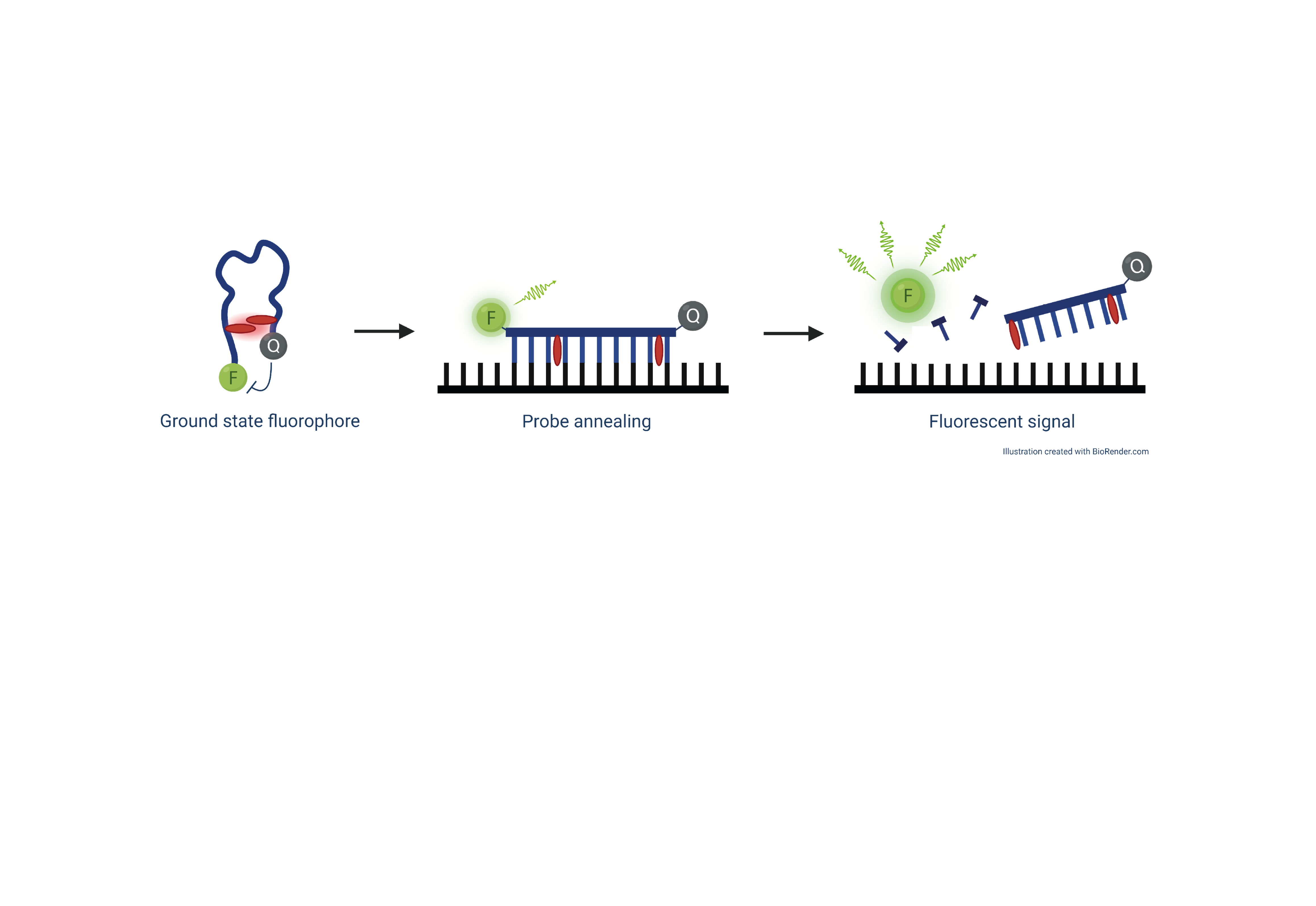
Naturally Quenched
By adding hydrophobic IPN molecules close to the ends of the dual-labelled HydrolEasy® probe, the fluorophore and quencher are automatically brought into close proximity due to interactions between IPN molecules. This leads to quenching of the unbound probe at all temperatures.
The addition of IPN molecules to HydrolEasy® probes is automatically done by PentaBase when receiving an order and is included in the price. The number of added IPN molecules depends on the desired melting temperature of the probe. The addition of IPN molecules typically adds 4-8°C to the melting temperature.
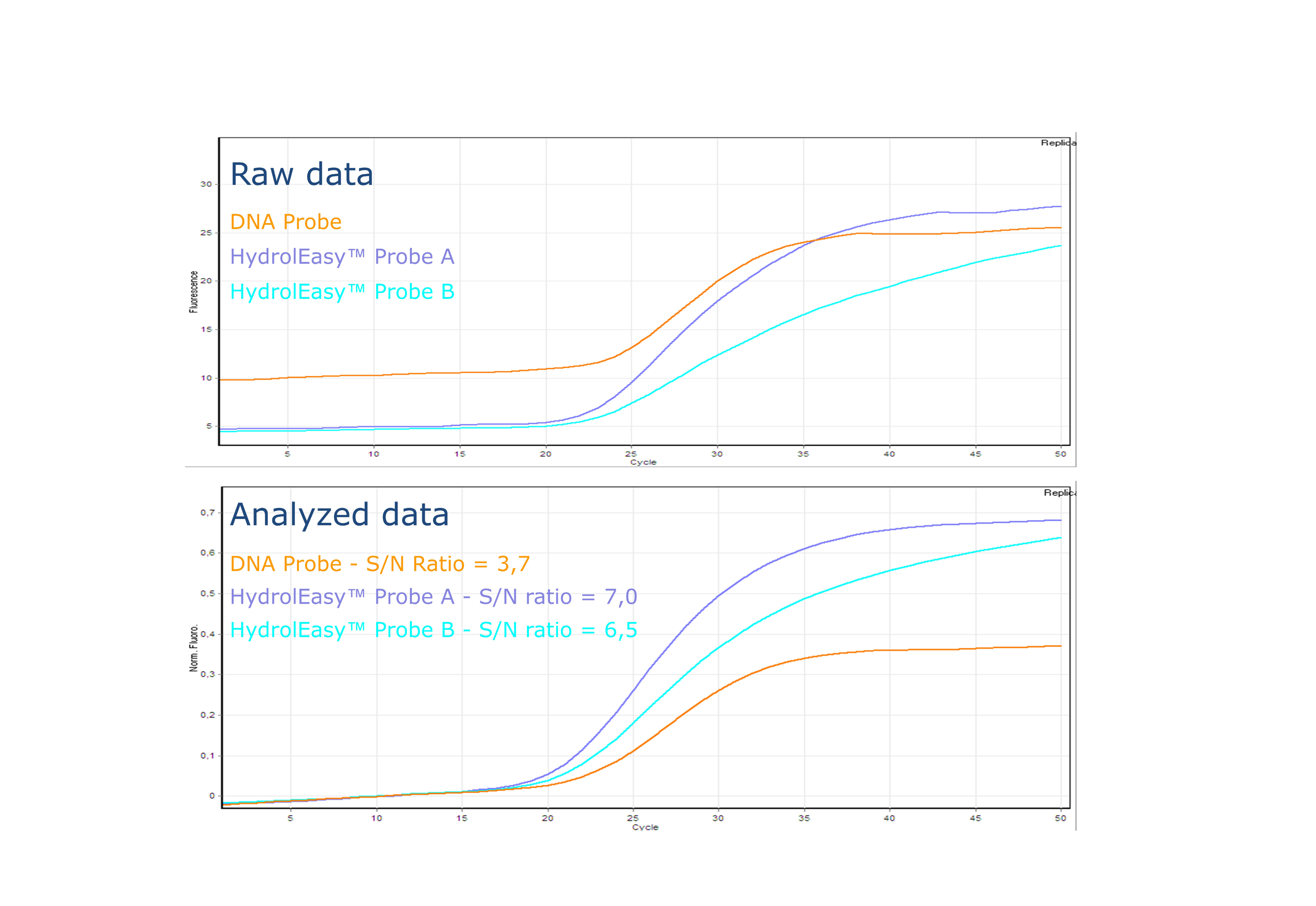
Increased Signal-to-noise Ratio
The lower background fluorescence of HydrolEasy® probes compared to standard TaqMan® probes leads to higher signal-to-noise (S/N) ratio of normalized flourescence.
This is particularly useful in assays that target low abundant and/or less accessible genetic regions by providing relative fluorescence levels above minmum requirements that would otherwise be difficult to reach with standard hydrolysis probes.
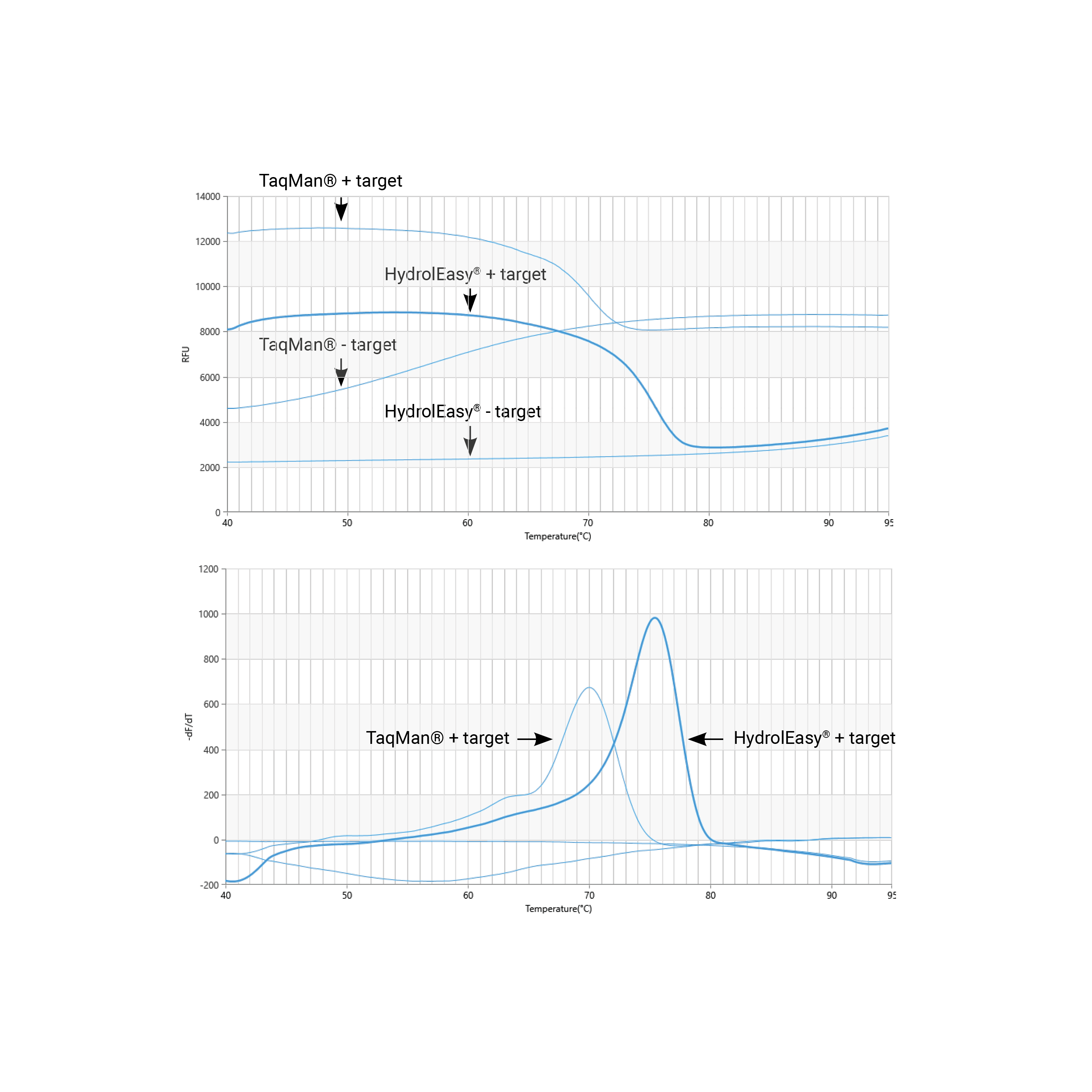
Inceased Target Affinity
HydrolEasy® probes have increased target affinity compared to standard TaqMan® probes. The graphs show melt curves (top) and melt peaks (bottom) of a TaqMan® probe and a corresponding HydrolEasy® probe (bold lines) with identical sequence.
The melting temperature (+ target) of the HydrolEasy® probe is significantly higher than the corresponding TaqMan® probe.
The background fluorescence (- target) of the HydrolEasy® probe is also significantly lower than the corresponding TaqMan® probe resulting in a considerably higher melting peak height.
These features of HydrolEasy® probes can be used to design PCR assays with higher sensitivity and specificity compared to assays based on standard TaqMan® probes.
